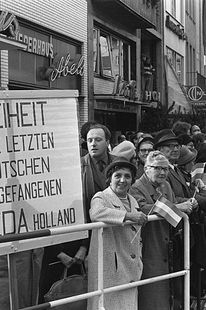
Divided memories in a united Europe
In post-communist Central and Eastern Europe, various museums have become subject of severe memory battles. The impressive Gdańsk Museum of the Second World War has occupied centre stage in these debates. In this event, its founder will speak of the huge challenges museums face when national politics intervene.
The founding director Paweł Machcewicz and his team set out to design one of the best museums of the Second World War in the world in order to remember the greatest tragedy in the history of mankind, as well as to integrate Polish experiences and East-Central European narratives into Europe’s memory culture. Prominent advisors such as Timothy Snyder and Krzysztof Pomian cooperated actively to create a European museum which combines Eastern and Western European perspectives.
However, government representatives criticised the museum for not focusing enough on Polish heroism and militarism and for not defending the “good name” of the Poles. Within two weeks after opening, the PiS-government dismissed Machcewicz and soon started to change its permanent exhibition. Today, Machcewicz fights to preserve the integrity of the exhibition in a law suit on the grounds of copyright. In his lecture, he will elaborate on the motives to establish this museum, the struggle to defend the autonomy of the museum, and on ways to combine Eastern and Western European perspectives.
About the speakers
Paweł Machcewicz is founder and director of the Museum of the Second World War in Gdańsk from 2008-2017. He was dismissed from his position by the PiS-government immediately after opening the Museum to the public; in 2017 he taught at the Université Libre de Bruxelles holding the International Chair for the History of the Second World War. Currently, he is a fellow at the Imre Kertész Kolleg in Jena.
Hanco Jürgens (moderator) is a member of academic staff at the Duitsland Instituut. He teaches German history at the University of Amsterdam. He published on a wide variety of topics relating to German and European history, such as De vleugels van de Adelaar, Duitse kwesties in Europees perspectief (Amsterdam 2017), with Ton Nijhuis.
:rgb(-15)
